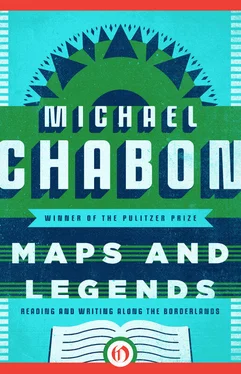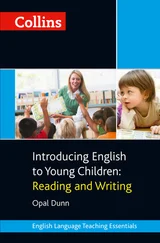There were two more crucial observations that came out of my reading of Goodbye, Columbus on the heels of The Great Gatsby. One was that Roth’s book was a hell of a lot funnier than Fitzgerald’s, which almost isn’t funny at all, especially when, as in the famous Party-Guest Catalog, it tries its hardest to amuse. The second observation, of the most striking parallel between the two books, got me so excited, once I noticed it, that I rushed through the whole Mrs. Patimkin-finds-the-diaphragm sequence so that I could get up again and resume my caged-bear perambulations: both books, I noticed, coincided precisely with a summer.
This was a parallel both deeply resonant and lastingly useful. I had just been through, in the years preceding my decampment for the West, a pair of summers that had rattled my nerves and rocked my soul and shook my sense of self — but in a good way. I had drunk a lot, and smoked a lot, and listened to a ton of great music, and talked way too much about all of those activities and about talking about those activities. I had slept with one man whom I loved, and learned to love another man so much that it would never have occurred to me to want to sleep with him. I had seen things and gone places in and around Pittsburgh during those summers that had shocked the innocent, pale, freckled Fitzgerald who lived in the great blank Minnesota of my heart.
So there was that. At the same time, the act of shaping a novel as Fitzgerald and Roth had done, around a summer, provided an inherent dramatic structure in three acts:
I. June.
II. July.
III. August.
Each of those months had a different purpose and a distinctive nature in my mind, and in their irrevocable order they enacted a story that always began with a comedy of expectation and ended with a tragedy of remorse. All I would need to do was start at the beginning of June with high hopes and high-flying diction, and then work my way through the sex, drugs, and rock and roll to get to the oboes and bassoons of Labor Day weekend. And then maybe I would find some way, magically, really to say something about summer, about the idea of summer in America, something that great American poets of summertime like Ray Bradbury and Bruce Springsteen would have understood. Maybe, or maybe not. But at least I would be practicing the cardinal virtue that my teachers had so assiduously instilled: I would be writing about what I knew. No — I would be doing something finer than that. I would be writing about what I had known, once, but had since, in my sad and delectable state of fallenness, come to view as illusory.
I put Roth’s book back on the shelf and went into Ralph’s room and shut the door. I switched on the computer with its crackling little 4 MHz Zilog Z80A processor. I was cranked on summertime and the memory of summertime, on the friends who had worked so hard to become legends, on the records we listened to and the mistakes we made and the kind and mean things we did to one another. I slid a floppy disk into drive B. I paused. Was this really the kind of writer I was going to become? A writer under the influence of Fitzgerald and Roth, of books that took place in cities like Pittsburgh where people took moral instruction from the songs of Adam and the Ants? What about that sequence of stories I’d been planning about the astronomer Percival Lowell exploring the canals of Mars? What about the plan to do for romantic relationships what Calvino had done for the urbis in Invisible Cities? What about that famous sense of wonder, my animating principle, my motto and manual and standard MO? Was there room for that, the chance of that, along the banks of the Monongahela River? I took a deep breath, saw that I was properly balanced on my perch, and started to write — on a screen so small that you had to toggle two keys to see the end of every line — the passage that became this:
It’s the beginning of the summer and I’m standing in the lobby of a thousand-story grand hotel, where a bank of elevators a mile long and an endless red row of monkey attendants in gold braid wait to carry me up, up, up, through the suites of moguls, of spies, and of starlets; to rush me straight to the zeppelin mooring at the art-deco summit where they keep the huge dirigible of August tied up and bobbing in the high winds. On the way to the shining needle at the top I will wear a lot of neckties, I will buy five or six works of genius on 45 rpm, and perhaps too many times I will find myself looking at the snapped spine of a lemon wedge at the bottom of a drink.
I went on in this vein for several paragraphs, and some of what I wrote that first session ended up, after much revision, at the end of the novel, which I reached in the midwinter of 1987, in the back bedroom of a little house on Anade Avenue, on the Balboa Peninsula, shortly before my twenty-fourth birthday. At some point that first evening, as with the help of Ralph’s ghost, or of the muse who first made her presence known to me there in that room under the ground, with its smell of earth and old valises, I invoked the spirit and the feel and the groove of summers past, I did something foolish: I started rocking in my chair. Just a little bit, but it was too much. I rocked backward, fell off the trunk, hit my head on a steel shelf, and made a lot of noise. There was so much racket that my mother came to the top of the stairs and called out to ask if I was all right, and anyway, what was I doing down there?
I clambered back up from the floor, palpating the tender knot on my skull where the angel of writers, by way of warning welcome or harsh blessing, had just given me a mighty zetz. I hit the combination of keys that meant Save.
“I’m writing a novel,” I told her.
IN 1987, IN THE final stages of work on my first novel, The Mysteries of Pittsburgh, I came upon a little picture that nearly ruined my life. It was a reproduction of an aerial painting of Washington, D.C., by the architectural visionary Léon Krier — a tiny prospect of blue water, white avenues, green promenades, glimpsed from a tantalizing distance, unattainable, ever receding. My reaction to this picture was strange: my heart began to pound, the hair on the back of my neck stood up, and I felt a sadness come over me, a powerful sense of loss, which I began at once to probe and develop, thinking that in an attempt to explain the inexplicable ache this little picture caused in my chest there might lie the matter of a second novel.
I didn’t know that what I was feeling was a prefigurative pang of mourning for the next five years of my creative life.
I felt I had stumbled across a kind of treasure map to the barnacle-encrusted wreck of something true and important sunk deep inside of me, and I decided to try to bring it up and expose it to the light. Five years and some fifteen hundred pages later I was still trolling the murky waters of the Innermost Sea in search of that fabled wreck, which by then I was calling Fountain City. In that time I had found fantastic, shattered hulks and ruins down there, helmets and rimy flatware, chests of moldering silk, astrolabes, the skeletons of men and horses, but nothing that I felt could honestly be considered treasure. And when, at the end of 1992, with the help of my editor Doug Stumpf, I tried one last time to hoist the whole rotten caravel to the surface, it all just fell apart.
In the aftermath of this debacle, though I kept it to myself, I felt bewildered, depressed, and, to be honest, terrified. I was not accustomed to failure, nor to the bathyspheric pressures that weigh on a second novel, particularly where the first has met with any kind of success. The pressure I felt while writing The Mysteries of Pittsburgh had been entirely different in nature. I’d had no readers then, no book contract, no reputation, nothing but an MFA thesis to be written and a vague sense that in stringing together the seven thousand sentences of that thesis I was forging an identity for myself in the world as a novelist — or else failing abjectly to do so. It never occurred to me that if Mysteries didn’t pan out I would be able to try again; I attempted to put into that book everything I had ever learned or felt, and to use every single word I knew. This purely internal pressure — to become, once and for all, a writer — was thrilling, astringent; it whetted the appetite, and I could feel myself succeeding in my ambition, or so I thought, with each new chapter I wrote. Most of the time the work, however slow or difficult, was also a hell of a lot of fun.
Читать дальше
Конец ознакомительного отрывка
Купить книгу












